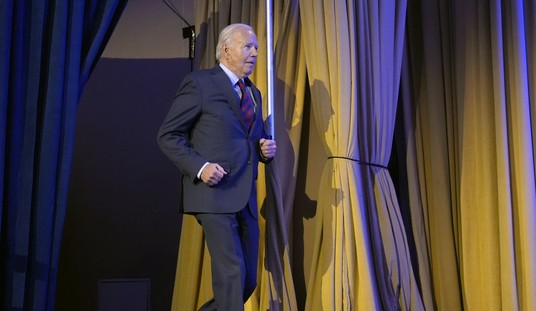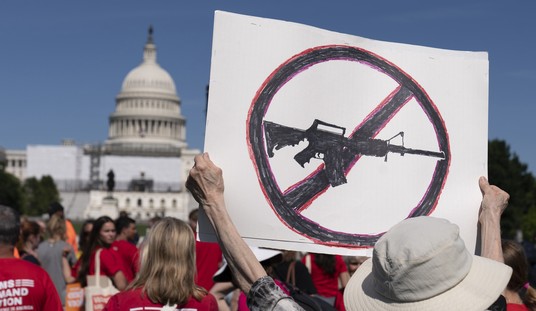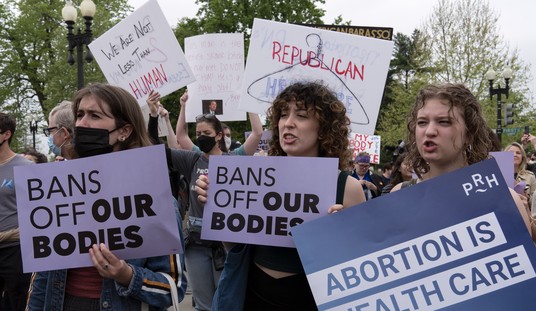The culture is rapidly changing.
When I was in school, one of the things hammered into our young skulls of mush was society’s foundational First Amendment.
It was first: It was the thing of which the Constitution — which is to say, the country — was in most immediate need.
But maybe not so much? Why should people be allowed to say what they want? Why should you be permitted to express “hate” — aka, disagreement (here).
The tricky part of ending the destructive right to say what one wishes is deciding who gets to choose what can be said.
So far, it seems we’re going with one particular end of the ideological spectrum.
And it ain’t yours, but that’s the breaks.
We’re also going, it would appear, back to the 30’s: There are only two races again — white and non-white, otherwise knows as “people of color” (here).
And a new study reports that non-Caucasian high school students believe the First Amendment “goes too far.”
The annual Future of the First Amendment survey by the John S. and James L. Knight Foundation was released Wednesday, and the journalism philanthropy’s findings reveal a difference between minorities and whites where freedom of speech is concerned.
On a four-point scale ranging from Strongly Agree to Strongly Disagree, since 2011, whites have tended to disagree with the notion of 1A going too far while minorities have increasingly agreed.
Separated by sex, girls were more likely to agree than were boys.
Minorities were bigger fans of people not being punished for posting opinions of teachers online, but they were more in favor of websites being “punished for publishing comments from the public that many people would consider offensive.”
The Knight Foundation offers a possible explanation for the difference in the way racial groups view free speech: Education.
That could surely be said about what I — just from observing the news — would presume is a generational decrease across all races of appreciation for our personal liberties.
From KnightFoundation.org:
In general, coursework has a significant effect on students’ support for the First Amendment. On average, students who have taken a class that dealt with the First Amendment are more supportive of various rights and protections, and less likely to think the First Amendment goes too far.
And:
This research report offers a number of other insights that may be useful to parents, educators, and policymakers as they contemplate new approaches on a variety of pressing topics, from the shape of civics curricula to policies specifying which kinds of student speech should be tolerated on social media.
Further, the report provides a barometer of how society is raising the next generation to see the core First Amendment commitments of the country. In 2019, America marks both the 100th anniversary of its first major Supreme Court decisions interpreting speech under the First Amendment and the 50th anniversary of its landmark ruling protecting student political expression in schools. This report explores the implications of changing student interpretations of the First Amendment and how such changes may affect American society in the long term.
Plus there was this from the report itself:
[T]he push for better and more systematic civics education has stagnated, losing out to a greater collective focus on math and reading. Survey research has suggested that U.S. adults as a whole have diminished civic knowledge, and, according to critics and many researchers, the obvious way of redressing this — robust education in the schools — is not being carried out with a sufficient degree of seriousness. Indeed, comprehensive assessments of U.S. students’ civics knowledge suggest that only 1 in 4 are able to score at a proficient level.
I have a suggestion of something the students should study:
“Congress shall make no law respecting an establishment of religion, or prohibiting the free exercise thereof; or abridging the freedom of speech, or of the press; or the right of the people peaceably to assemble, and to petition the Government for a redress of grievances.”
I say, let’s open with that. Every day of school.
Otherwise, we wind up with people like this guy.
It’s a sad day in American education when public institutions of learning are covering social issues like it’s going out of style and yet many students don’t understand the free country in which their living.
Or maybe I don’t understand, and it’s a country permanently different than the one in which I grew up.
I’m hoping for the former.
-ALEX
Relevant RedState links in this article: here, here, and here.
Find all my RedState work here.
And please follow Alex Parker on Twitter and Facebook.
Thank you for reading! Please sound off in the Comments section below.















Join the conversation as a VIP Member